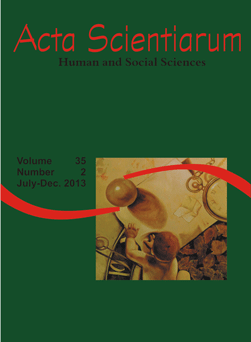<b>O surgimento da escravidão: notas críticas sobre um modelo biossociológico de explicação histórica<b>
Résumé
Entre as diversas explicações dadas nos últimos dois séculos para as origens da escravidão encontra-se a ideia de uma correlação lógica e histórica entre evolução dos meios de obtenção de alimentos e abandono do consumo antropofágico dos prisioneiros de guerra: ao disporem de maiores recursos proteicos, os vencedores optaram por não mais matar os vencidos, mas usá-los como escravos. Nas décadas de 1950 e 1960, o economista francês Maurice Lengellé escreveu diversos textos (alguns com Michel Cepède) nos quais apresentou uma interpretação biossociológica dessa ideia, a partir de uma distinção entre escravidão ‘simbiótica’ e escravidão propriamente dita (ou ‘parasitária’). Este artigo resume suas teses e as encaixa no âmbito mais amplo da história das concepções antropológicas e sociológicas modernas da escravidão.
Téléchargements
DECLARAÇÃO DE ORIGINALIDADE E DIREITOS AUTORAIS
Declaro que o presente artigo é original, não tendo sido submetido à publicação em qualquer outro periódico nacional ou internacional, quer seja em parte ou em sua totalidade.
Os direitos autorais pertencem exclusivamente aos autores. Os direitos de licenciamento utilizados pelo periódico é a licença Creative Commons Attribution 4.0 (CC BY 4.0): são permitidos o acompartilhamento (cópia e distribuição do material em qualqer meio ou formato) e adaptação (remix, transformação e criação de material a partir do conteúdo assim licenciado para quaisquer fins, inclusive comerciais.
Recomenda-se a leitura desse link para maiores informações sobre o tema: fornecimento de créditos e referências de forma correta, entre outros detalhes cruciais para uso adequado do material licenciado.

























